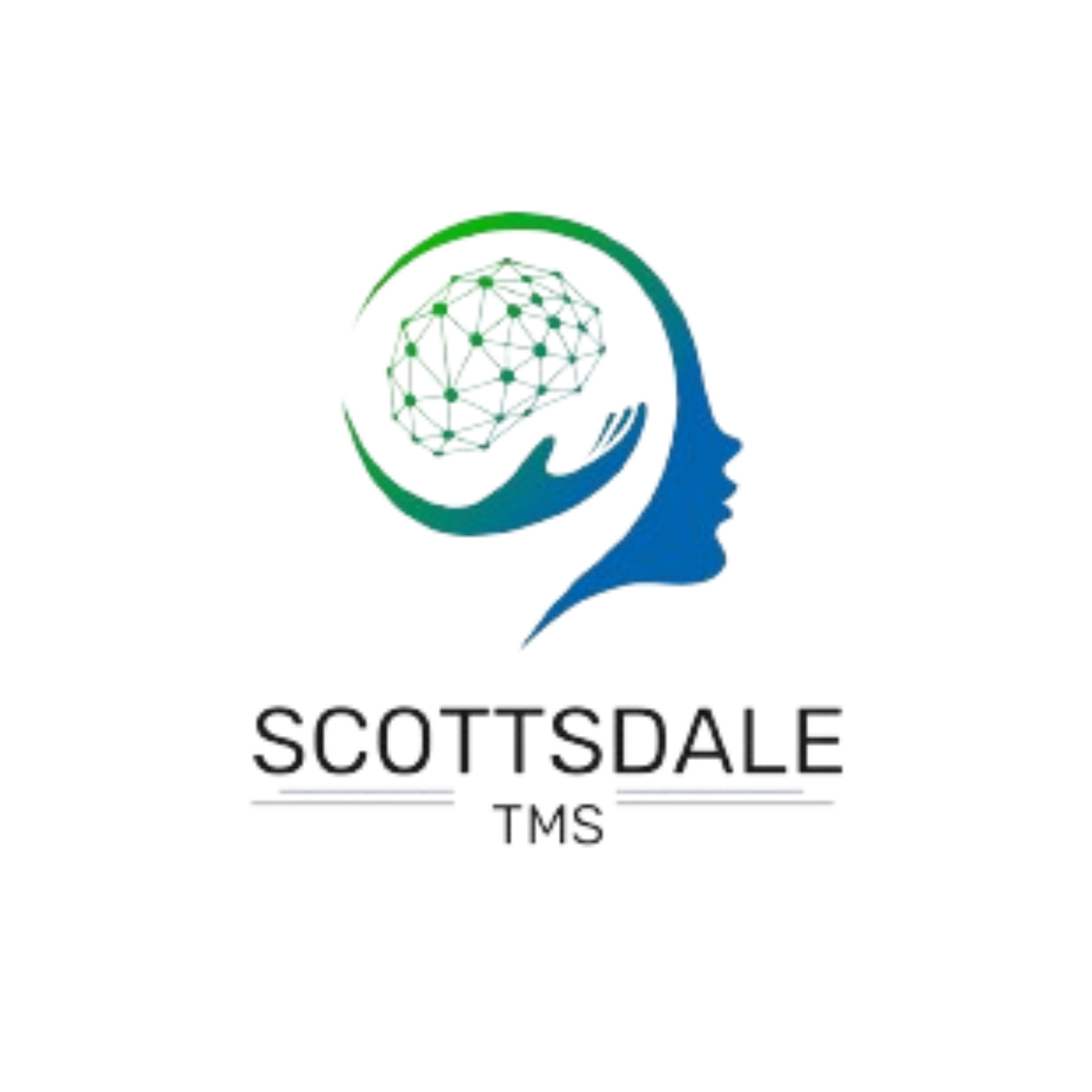Transcranial Magnetic Stimulation (TMS) stimulator therapy is a non-invasive brain stimulation treatment for mental health challenges. It is especially useful for people who have not found relief from antidepressant medication.
This article explains the benefits of TMS stimulator therapy, how it works, its effectiveness, and what to expect during transcranial magnetic stimulation sessions.
Questions Answered in This Article:
Our Alcohol Addiction Treatment Programs

Scottsdale Rehab
Luxury Personalized Rehab

Hart Rehab
Holistic Luxury Personalized Rehab

Scottsdale Detox
Luxury Medical Detox
What Is a TMS Stimulator?
A TMS stimulator is a device that sends magnetic pulses to specific areas of the brain, mainly the motor cortex. These pulses stimulate nerve cells and improve brain activity.
TMS is non-invasive, so it does not require surgery or implants. During therapy, a magnetic coil is placed on the scalp. The coil produces brief pulses that pass through the skull to target brain regions involved in mood regulation. This may help reduce depressive symptoms.
How TMS Magnetic Brain Stimulation Works
TMS magnetic brain stimulation uses targeted pulses to improve brain function. The pulses activate nerve cells and enhance communication between areas that may be underactive in major depression or treatment-resistant depression.
By focusing on areas that control mood, TMS helps restore normal brain function. Patients often notice improvements in mental health, focus, and emotional balance.
Key Benefits of TMS Stimulator Therapy
1. Effective Treatment for Depression
One of the main benefits of TMS stimulator therapy is its effectiveness in treating major depression, especially in patients who do not respond to antidepressants.
Many marijuana users or adults with treatment-resistant depression have found relief through regular transcranial magnetic stimulation sessions. TMS targets brain regions directly linked to mood, making it a valuable mental health treatment with TMS.
2. Non-Invasive and Safe
TMS is a non-invasive brain stimulation treatment. Patients do not need anesthesia, and there is no risk of systemic side effects often seen with antidepressant medication.
Most patients experience only mild scalp discomfort or temporary headaches. These side effects are short-term and usually fade after a session.
3. Minimal Interference with Daily Life
TMS therapy is performed in outpatient settings. Sessions usually last 30–45 minutes, and patients can return to their daily routines immediately.
Because it is not systemic, TMS does not interact with other medications or treatments for depression, making it easy to combine with existing care plans.
4. Targeted Brain Stimulation
A TMS stimulator delivers magnetic fields directly to specific brain regions. By stimulating the motor cortex and related areas, TMS improves neural activity where it is needed most.
This targeted approach enhances TMS treatment effectiveness and reduces the risk of side effects compared to broader treatments.
5. Supports Mental Health Beyond Depression
Although most studies focus on depression, TMS therapy may also help with other mental health conditions, such as anxiety or obsessive-compulsive disorder.
Researchers are exploring combining TMS with transcranial direct current stimulation (tDCS) for enhanced outcomes. Overall, TMS can boost mental health beyond just treating depressive symptoms.
6. FDA-Approved and Evidence-Based
TMS is FDA approved for treating depression, particularly treatment-resistant depression. Scientific research shows that repeated transcranial magnetic stimulation sessions can reduce depressive symptoms and improve quality of life.
Evidence also supports long-term benefits when TMS is combined with proper mental health care and support.
7. Few Long-Term Side Effects
Unlike some medications, TMS has few long-term side effects. Because it uses magnetic pulses rather than chemicals, it does not affect the liver or kidneys.
Patients usually experience only minor, temporary discomfort at the site of stimulation. This makes it a safe treatment option for long-term mental health management.
What to Expect During TMS Sessions
During a TMS session, patients sit comfortably while a magnetic coil is placed on the scalp. The device sends brief pulses that may feel like tapping or knocking on the head.
Sessions are generally painless. Most patients undergo daily transcranial magnetic stimulation sessions for several weeks, with noticeable improvements in mood, focus, and energy over time.
TMS Therapy vs. Antidepressant Medication
TMS therapy offers advantages over traditional medications. It does not involve systemic drugs, which lowers the risk of interactions and side effects.
Because it is targeted, TMS can influence specific brain regions directly responsible for mood regulation. Patients who have not responded to antidepressants often find TMS therapy a valuable alternative or complementary treatment.
Repetitive Transcranial Magnetic Stimulation (rTMS)
Repetitive transcranial magnetic stimulation (rTMS) delivers repeated magnetic pulses to the same brain region. This strengthens neural pathways and supports long-term improvements in mood.
rTMS is especially beneficial for patients with chronic depressive symptoms or those seeking a durable solution for mental health treatment with TMS.
Who Can Benefit from TMS Therapy?
TMS is suitable for adults with major depression, particularly those who have not responded to antidepressant medication.
It may also help anyone seeking non-invasive brain stimulation with minimal physical symptoms. Mental health professionals assess medical history and treatment goals to ensure TMS is appropriate for each patient.
Why TMS Stimulator Therapy Could Be Right for You
The benefits of TMS stimulator therapy go beyond traditional treatments. By using targeted magnetic pulses, TMS offers an FDA-approved, non-invasive brain stimulation option to improve mental health and reduce depressive symptoms.
Through regular transcranial magnetic stimulation sessions, patients can experience improved mood, better focus, and enhanced overall well-being. For those struggling with depression or seeking treatment for depression that complements existing care, TMS therapy is a safe and effective option.

